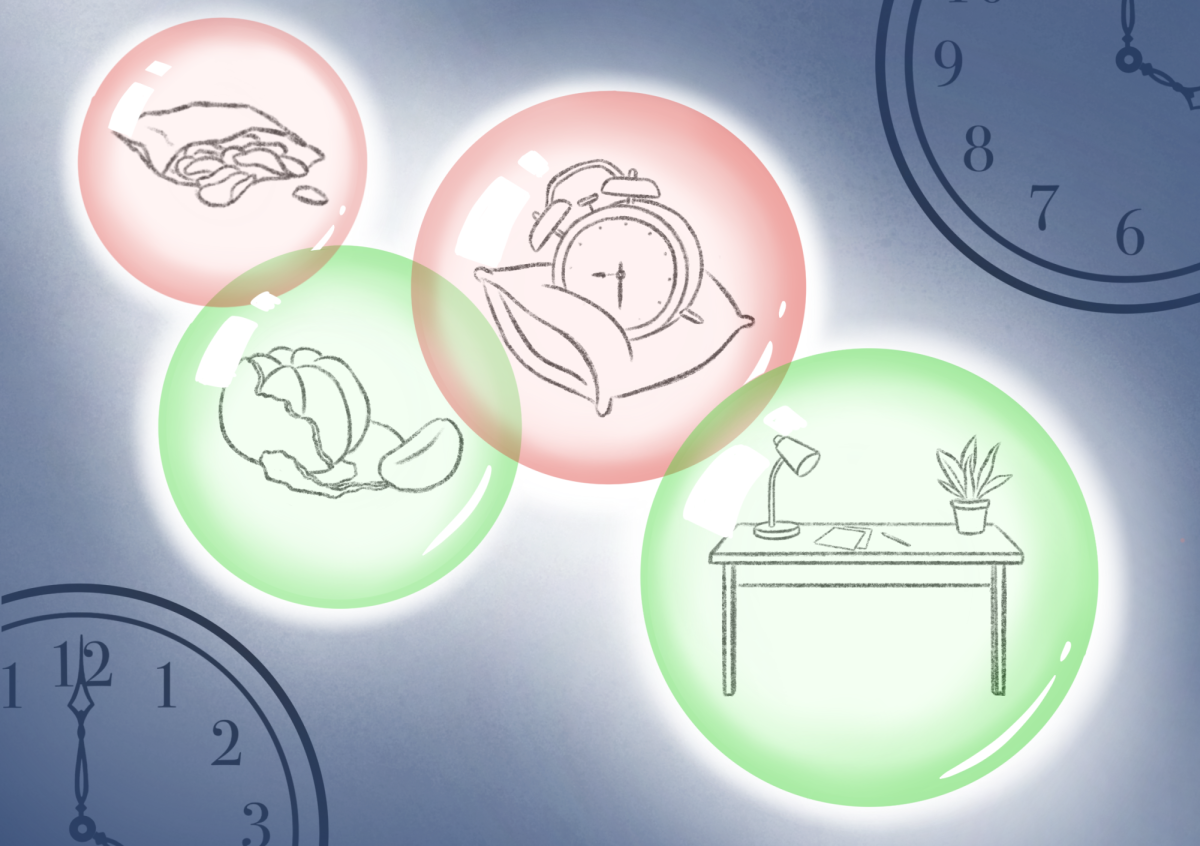Ever feel tired after coming home from school? Feel like you can’t get any work done? Want to hibernate for eternity in your ever-so-comfortable bed? Well, you appear to have a classic case of the “after-school slump.”
Don’t worry, you’re not alone. Studies show that daytime sleepiness is common in teens. Especially if you’re going to bed past midnight after doing multiple hours of difficult homework (which is true for many of us), your body seems to dump all the excess exhaustion on you in the afternoon.
Here are some proven strategies that’ll help you combat your after-school slump and transform you into a model student. Note: The writer of this story is not liable for any damages caused by attempted replication of these strategies.
The first strategy is probably the most obvious one: snacking. Most teens already do this, and for a good reason — eating snacks is a great way to replenish and refresh. Usually any type of food works, but I prefer healthier options like oranges or apples over a bag of chips, since the natural sugars boost your energy and provide fiber and antioxidants.
However, take a word of caution from me. Snacking on top of your math problems is honestly more of a distraction than a benefit. In most cases, you start to focus too much on the Oreos instead of your work. I suggest setting aside 10 to 15 minutes replenishing yourself with snacks, then switch gears and dive right into your work.
Another strategy for combating the after-school slump is to gain momentum when doing homework. For instance, I suggest completing paper assignments first so you can put your computer and phone to the side. This way, you minimize your online distractions and quickly generate the momentum you need to carry you through the rest of your study session.
Once you’re done with the paper assignments, try transitioning to a focused study period with your online homework shouldn’t be too hard (unless you’re chronically addicted to your phone, in which case you’re past a point of no return). At the end of the day, getting in the mental zone for homework and finishing everything in one fell swoop is the way to go.
Some other minor tips can also be effective depending on your preferences. For example, I prefer working at a desk, not on a bed; I prefer a bright environment, not a dark one; I prefer working in my own room, not in a noisy or distracting environment. Everyone has their own method of focusing, so choose the one that works best for you.
Next, let’s look at some strategies that appear effective on the surface, but do not be deceived! They pose serious risks to your productivity.
Taking a nap is one of the worst things you could do. At first, you might think: Why not combat fatigue with its natural enemy — sleep? In fact, a short 30- to60-minute nap has been shown to improve mental efficiency, allowing you to “lock in” when completing your homework.
So why doesn’t this strategy work? The problem is that tired high school students don’t have the self-discipline to only sleep for a few minutes. More often than not, I have woken up at 8 p.m. realizing my alarm didn’t go off. I feel groggy and disoriented for a couple of hours, and worse, I can’t fall asleep at night because my sleep schedule was disrupted. Nap at your own risk.
Next on the list of bad strategies is “relaxing.” Relaxing is in quotes because this form of “relaxing” usually involves something dopamine-inducing like playing a game or scrolling through Instagram reels. You convince yourself that it will help you “loosen up” and “get ready to lock in.”
Don’t be delusional. There is no “just 15 minutes” or “just 50 reels.” You might as well multiply those numbers by 10 — I’ve heard far too many friends say they’ll “start homework in a bit” while putting it off for 3 hours.
I’ve found the most important concept behind after-school productivity is how you respond to the voice in your head saying, “I’m tired after a long day. I deserve to relax.” Sure, you can relax for a little bit with snacks or a stretch, but try to resist the urge to completely give in — it often leads to more trouble than it’s worth.



























